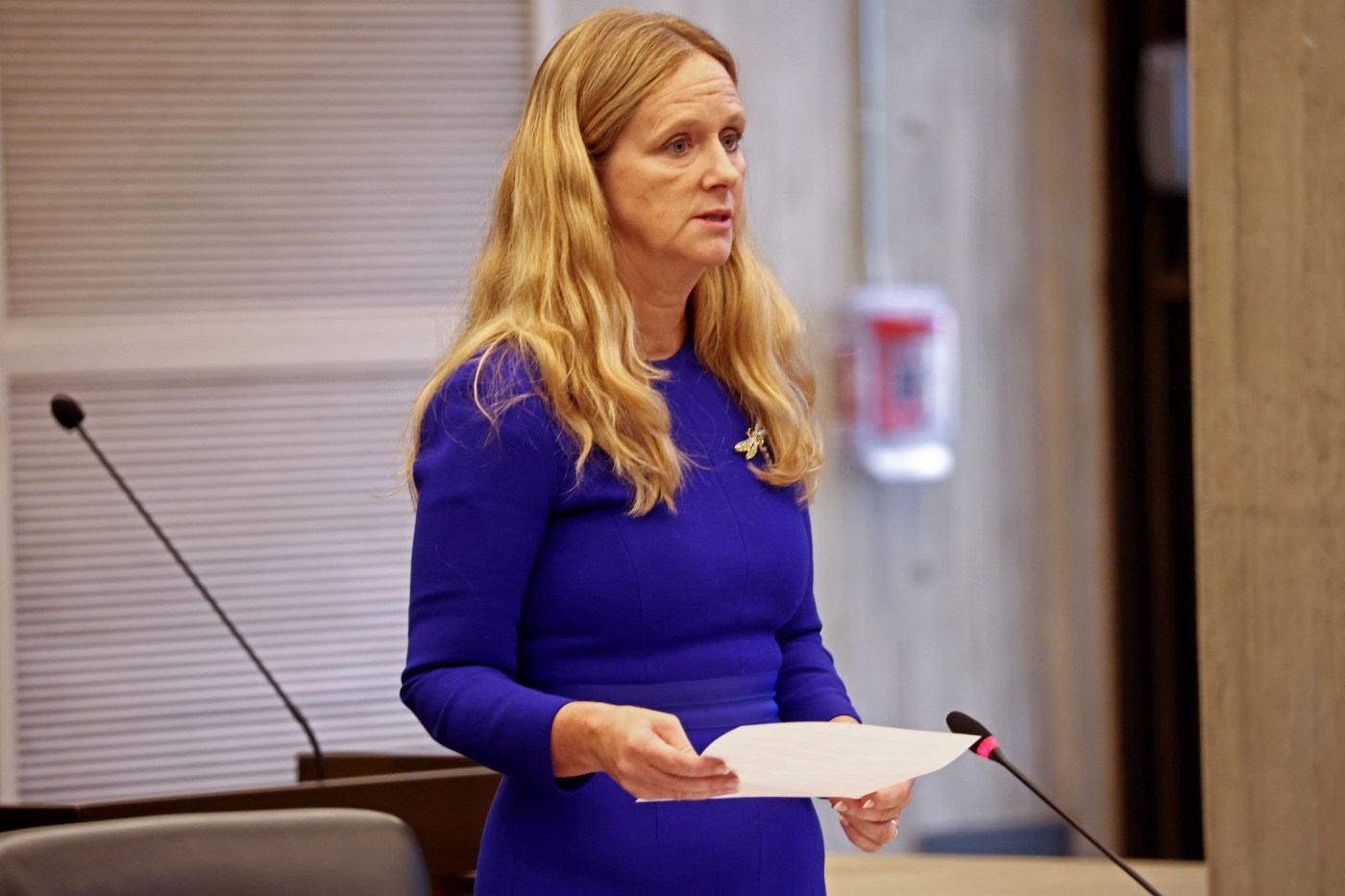
New Boston housing cost legislation filed in wake of Wu’s tax shift bill failure
City Councilor Erin Murphy filed a new home rule petition Tuesday to raise the residential exemption, an attempt to pick up efforts to give Boston homeowners a tax break after the defeat of the mayor’s hard-fought push to shift the tax burden off residents and onto businesses.
“What I’ve heard most over these last few months around the tax conversation is that for seniors, people on fixed income, and all homeowners, all people who live in the city of Boston with rents — it’s just very expensive to live here,” said Murphy. “So I think what other tools do we have to address that?”
The legislation, put forth by Murphy and requiring approval from the City Council and state Legislature, would attempt to ease the cost of housing by increasing the amount of property value homeowners could claim a tax exemption for.
The city’s current residential tax exemption allows homeowners to apply to claim a 35% tax exemption for the property they occupy, meaning up to just over a third of the property value would be tax exempt. Under Murphy’s legislation, the city would be authorized to increase that exemption up to 40%.
City councilors are set to vote to set tax rates for residential and commercial property owners during the council hearing Wednesday. Mayor Wu’s home rule petition, defeated in the Senate Monday, aimed to allow the councilors to shift more of the tax burden from residents to businesses.
A city spokesperson critiqued the plan to increase the residential exemption Tuesday, arguing the impact would “increase in the actual residential tax rate.”
“The cost would be made up with non-homeowner occupied buildings, which are largely apartment buildings and multi-family dwellings,” the city spokesperson said. “This would shift more of the burden over from homeowners onto renters in Boston. The Mayor’s home-rule petition would have stabilized taxes and reduced the burden on all residents, homeowners and renters.”
Murphy critiqued the mayor’s tax shift legislation, which she voted for in October, saying the city did not develop a “plan B” to address homeowners’ rising costs and displacement. As Boston property values and so residents’ taxes rise, she said, the residential exemption increase would solely be a “proactive, direct way to positively affect our homeowners in the city.”
The 5% change could equal hundreds or thousands in tax savings for homeowners, depending on the property value.
Murphy said she’s seen support for the proposal, having talked to senators in support of the legislation. Heading into the last day of the legislative session, Murphy said, having the exemption in place for the first quarter tax bills next year is unlikely, but she’s “always hopeful.”
Related Articles
Don’t overdo it: Here’s what not to fix when selling a house
Homeownership is getting unaffordable for the middle class
Home sellers and buyers: What you must know for 2025
Should you use your home equity to pay holiday expenses?
Massachusetts high court says families must get shelter before IDing themselves
The councilor also argued the city will have to look at more than just relief measures to address issues of rising costs.
“I hope my colleagues will join me,” said Murphy, “but there’ll be more conversation about not just talking about great new initiatives, or departments we’re going to open, or plans we have, but really talking about how we’re going to pay for this.”


